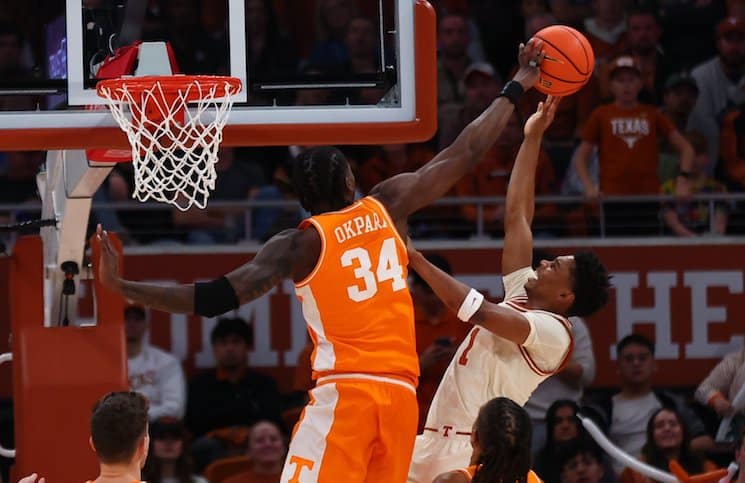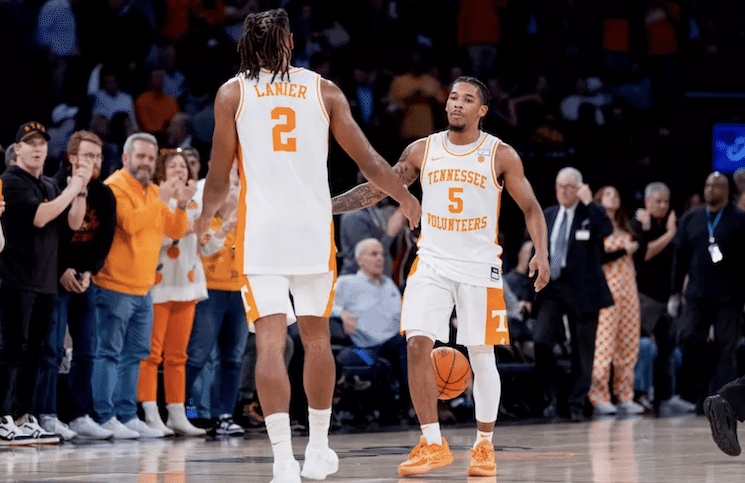
This Week in UT Sports History is a weekly column written by RTI contributor Lexie Little
While many tune in for Major League Baseball’s All-Star Week featuring feats of veteran players, others anticipate the future of sports by keeping tabs on their favorite current and former collegiate athletes during the summer. Though summer seems slow for sports fans, plenty happens to shape history across schools and athletic ranks.
Discover Big Orange moments that shaped athletic annals in “This Week in UT Sports History.”
July 9, 2010
Former head football coach Derek Dooley entered a program rocked in the wake of Lane Kiffin’s departure after the 2009 season. Some players remained frustrated about the sudden staff switch. That frustration manifested in a headline on CNN: “Tennessee player dismissed after bar brawl that left officer injured”
Bar Knoxville, a now defunct venue on Cumberland Avenue adjacent to campus, set the scene for a 2 a.m. fight which left an off-duty Knoxville police officer unconscious and a defensive back in handcuffs.
Dooley dismissed Darren Myles, who later pleaded guilty for resisting arrest and evading arrest in the incident. CNN reported Myles faced accusations of assaulting a University of Tennessee police officer who responded to the call, which resulted from altercations inside the bar and on the sidewalk where the off-duty officer lay, having been hit in the head and kicked several times.
“As I have referenced on many occasions, a change in culture is achieved in time through a combination of education, discipline, and support,” Dooley said in a statement from Tennessee Athletics. “We will aggressively continue to build on the many positive changes that have occurred over the last five months to ensure our program is represented with class and dignity.”
“Aggressively” might have been an ironic word choice, but Tennessee certainly did not waste any time in taking action to discipline players. In addition to dismissing Myles, Tennessee also suspended defensive tackle Marlon Walls and linebacker Greg King. Walls redshirted during the 2010 season because of an Achilles injury, and King only played in four games before season-ending knee surgery following the match-up against Georgia in which he forced the Bulldogs to punt on their final possession.
“It is a privilege, not a right, to be a member of the University of Tennessee football team,” Dooley said. “The most important responsibility of that privilege is to properly represent this institution and our supports on and off the field.”
That year, Sports Illustrated and CBS News conducted a six-month investigation into college football and crime. Seven percent of players in the preseason Top 25 had faced charges or citations for a crime, including some with multiple arrests. Nearly 40 percent of the 277 incidents examined involved serious offenses.
“[It is] a set of facts that obviously should concern all of us,” NCAA President Mark Emmert said. “Seven percent, that’s way too high. I think two percent is too high. You certainly don’t want a large number of people with criminal backgrounds involved in activities that represent the NCAA.”
Myles later transferred to the University of Dubuque in Iowa and received an invitation to try out for the Minnesota Vikings in 2015 as an undrafted free agent.
July 11, 2008
Before Myles ever received an invitation to join the Vikings, former Tennessee offensive guard Anthony Herrera held down the line for the men in purple and gold from 2004-2011. In 2008, the former Vol achieved a dream that transcended football; he became a United States citizen.
Herrera felt a sting when he did not hear his name called at the 2004 NFL Draft despite his status as an SEC starter, but he knew motivation proved a key for success. At times, he had needed it to simply survive.
On his 14th birthday, Herrera arrived in the United States, leaving Trinidad and Tobago with little save a dream. His mother worked long shifts as a nurse for several years until she could afford a house for her family, having lived in a rented bedroom in a man’s home. Herrera played high school football in Florida while his mother worked 12-hours shifts, knowing she sacrificed her time for the betterment of her family. His mother inspired his motivation to excel and reach the highest ranks of collegiate and professional football.
“Mom was always my goal,” Herrera said in an interview for the Naples Daily News. “I always wanted to make sure her house was paid for, and her car was paid for, and I’ve been able to do that. She has no worries.”
More than a decade after he first arrived in the United States, Herrera traveled to Bethel University with Vikings head coach Brad Childress for his ceremony.
Herrera had asked to shorten a meeting with Childress so he could make it to St. Paul in time for his ceremony. With his family in the South, Herrera was set to go alone.
“I said, ‘Anthony, you can’t get sworn in as a U.S. citizen and not have anyone with you,'” Childress said in an interview for the Star Tribune (as published on utsports.com). “I said, ‘Shoot, give me a minute. I’m going with you.'”
Herrera hoped to leave a legacy bigger than football by becoming a citizen. His grandmother, who became a U.S. citizen and sponsored his emigration, died just before he and his family arrived.
“I want to see my kids grow, see my grandchildren,” Herrera said. “Becoming a citizen, I just wanted to set a foundation and a standard for the future generations of my family.”
A Vol for Life, Herrara fights for his family – in orange and white or not.
July 11, 2008
On the same day halfway around the world, Tennessee Track rookie Jeneba Tarmoh fought for her place in the 4×100-meter event at the IAAF World Junior Track & Field Finals. Running the opening leg of the 4×100-meter relay, Tarmoh and her teammates sprinted to the top time at Bydgoszcz City Stadium in Bydgoszcz, Poland, to advance to the final round.
Two days prior, the Lady Vol won the gold medal in the 100m dash with a time of 11.37. Her team went on to win gold in the 4×100 on July 12. Tarmoh had earned the title of 2008 freshman runner of the year prior to her victories abroad.
Tarmoh returned to the U.S. with her victories, ready for a sophomore season as…a Texas A&M Aggie. She transferred to the then Big 12 school and sat out one season because of NCAA transfer rules. At A&M, she helped lead the team to win three consecutive NCAA Track & Field Outdoor Championships from 2009-2011.
Her short-distance skills did not diminish as her career continued. In 2012, she earned a gold medal with the United States Olympic Team in the 4×100 at the Olympic Games in London. Her concession of the final spot in the 100m dash at the Olympic trials received much media attention prior to the games. Tarmoh tied with training partner Allyson Felix at the USA Track and Field trials. With no protocol in place for a dead heat runoff, officials tried to draft tie-breaking procedures. After believing she won the spot outright initially, Tarmoh begrudgingly agreed to the runoff.
“This decision was really hard for me to make,” Tarmoh said in her reaction via The Guardian. “I was pushed into a corner. They said if you don’t make a decision, you give your spot up. I work too hard to just give my spot up. I had to say it was a runoff.”
Then, she withdrew just before competition, conceding the spot to Felix. Felix placed fifth in the event at the Olympic Games.



